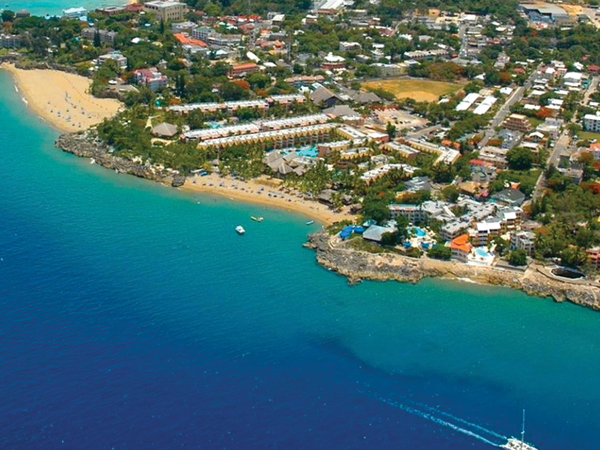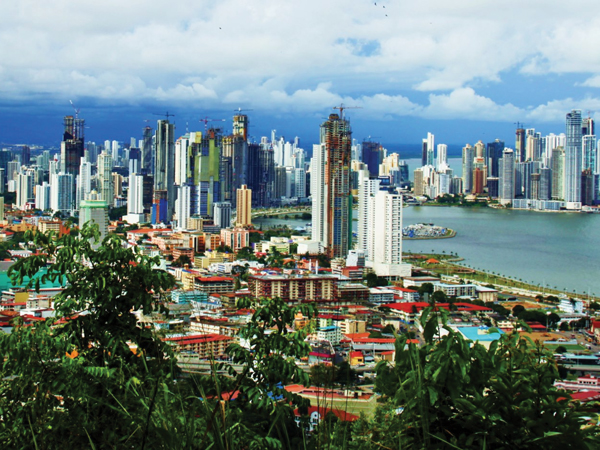The term “offshore accounts” has come to be synonymous with hiding money from U.S. authorities, including the IRS, but most of the banking and business conducted abroad is legitimate.
However, a lot of regulations and restrictions exist for Americans who want to conduct banking and business in foreign countries, says Live and Invest Overseas, an online resource for investing, traveling and living abroad. So, in addition to knowing U.S.-imposed regulations for doing business overseas, it is essential to know the restrictions that apply in each foreign country.
Some countries are friendlier to foreigners when it comes to transacting business and establishing finances than others. Live and Invest Overseas looked at the countries with the least regulations, taxes, and residency requirements, the ease of doing business and the best asset protection for opening a bank account and establishing a business.
Following are the top five options for diversifying offshore and a few reasons Live and Invest Overseas likes them.
No. 5. Cayman Islands

The Cayman Islands are a granddaddy among offshore jurisdictions. This archipelago is home to well-established financial and offshore entity industries and has more than 200 banks, including branches of major international banks, creating many private and investment banking options.
This is one of the best and most diversified choices for investing in offshore financial investments, such as international stocks, bonds, and mutual funds. The trouble is that SEC prohibits most Cayman banks and brokerage houses from dealing with U.S. citizens. An American wanting to take advantage of the investment opportunities on offer in this jurisdiction must set up an entity to hold them. You could go with a Cayman structure to make banking easier, or one from the island of Nevis.
No. 4. St. Kitts & Nevis

St. Kitts & Nevis, which are a two-island federation in the Caribbean, takes a jurisdictional approach to taxation, which means there is no tax on investment income. That makes it a tax-efficient place to hold investments since no tax is collected on the investment income in the country.
St. Kitts offers an economic citizenship program that makes a second passport possible in less than a year but at a cost of a minimum of $250,000, compared to $6,000 in the Dominican Republic. The passport is one of the best travel documents you can have, so if you can afford it, the cost can be justified.
Nevis is known for offshore entities such as corporations, LLCs, and trusts. Any of these structures can be used for asset protection and a Nevis entity provides a strong layer of asset protection that can be difficult to penetrate. A Nevis trust brings powerful protection as well as estate planning benefits.
No. 3. Uruguay

Uruguay also takes a jurisdictional approach to taxation, meaning it taxes only income earned in Uruguay. That makes it a good jurisdiction for setting up a company to house non-Uruguayan activities. Uruguay also is known as a competitive residency and second citizenship option. It offers the possibility of being naturalized after as little as two years of residency if you’re married.
Banking in Uruguay is an attractive choice because banks in this country offer currency options not available in most jurisdictions.
No. 2. Dominican Republic

The Dominican Republic offers some of the easiest and cheapest residency options available anywhere. If you qualify for the Fast Track program, you can apply for citizenship just six months after obtaining residency. That’s the quickest citizenship-through-residency program.
The Dominican Republic has fewer banks and much more limited private and investment banking options than Panama, but banks are more open to working with foreign clients, including Americans. In addition, Dominican Republic banks will lend to foreigners for the purchase of real estate.
No. 1. Panama

Panama added some new record-keeping regulations after the release of the Panama papers last year. But it is still the top pick for doing business offshore in 2017. Panama’s big advantage as an offshore jurisdiction is its approach to taxation. This country taxes only income earned in Panama, meaning it can be possible, if you organize things well, to live and operate a business here tax free.
In addition, Panama also offers foundations, a structure similar to a trust that can be useful for asset protection and estate planning. Residency in Panama is fairly easy to establish. There are many options for both local operating accounts and for private banking. Panama remains the best place in the world to start and operate an internet or laptop business in 2017.